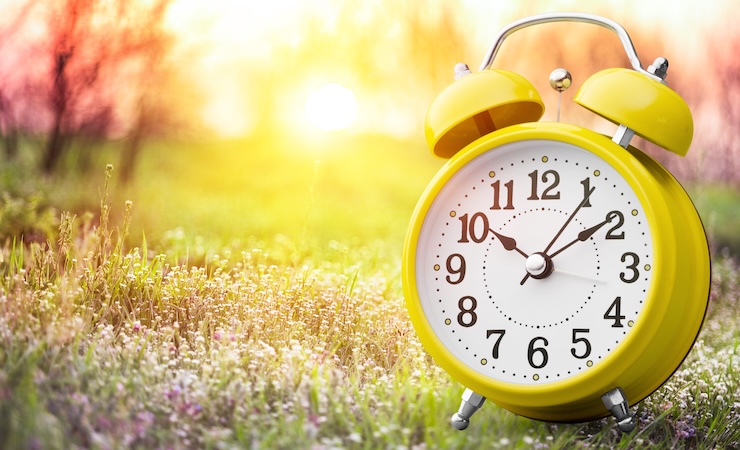For many of us, morning dread takes on a deeper meaning in the wintertime. Although your alarm insists it’s time to greet the day, it’s still cold and dark outside—which makes crawling out of your warm bed that much harder.
“The lack of light in the winter months means that our internal clock is prone to sleeping later,” says Jennifer L. Martin, PhD, behavioral sleep medicine specialist and professor at the David Geffen School of Medicine at the University of California in Los Angeles.
If you’re struggling to peel open your eyes, you can blame the lack of sunlight, as bright morning light is a key regulator of your circadian rhythm, aka your natural sleep-wake cycle.
The good news: There are a few simple ways you can boost your energy in the morning, whether or not the sun shows up. So, instead of hitting snooze (again), make the most of your morning throughout the winter months and all the way into spring.
Here’s how to get energized in the morning, according to experts.
Stick to a sleep schedule
It’s a simple piece of advice, but setting a firm bedtime and wake-up time may make getting up on winter mornings a little easier and help you avoid oversleeping (which, yes, can actually be bad for you).
“If you get up at the same time every day, your brain will start to send alert signals around that time, and your internal clock will become your natural alarm clock,” explains Martin. Aim for seven to eight hours of shut-eye with the help of an app like Bedtime or Sleep as Android.
Simulate sunlight
If sunshine is scarce in the winter months where you live, use artificial light to shut off your body’s production of melatonin (the hormone making you so sleepy) and up your alertness, says Martin.
Since flicking on all the lights is likely the last thing you want to do in the morning, automation is your friend. Consider an outlet timer for your bedside lamps or an alarm clock that slowly fills your bedroom with light, sunrise-style, like the Philips Wake-Up Light Alarm Clock.
Watch this video for tips on putting together an energizing morning routine:
Wake up with water
One underrated source of wintertime fatigue and poor sleep is dehydration. Since your body may confuse signals for thirst and fatigue, it’s important to drink up to avoid feeling low on energy, explains Lauren Harris-Pincus, RD and author of The Protein-Packed Breakfast Club.
What to do: Flip on your body’s wake-mode with a cold, refreshing glass of water first thing in the morning or reward yourself for crawling out of the covers with a mug of hot lemon water, Harris-Pincus’s go-to morning refresher.
Fuel up with protein and fiber
In the winter months, skip comfort foods like highly-processed bagels and breakfast pastries, which can spike your blood sugar and result in an energy dip a few hours later, says Harris-Pincus.
Instead, boost your energy stores with a high-protein, high-fiber breakfast such as oatmeal with fruit and Greek yogurt or a veggie omelet with whole-grain toast, she suggests. Why? Protein and fiber take longer to digest and, as a result, keep your energy up all morning long.
Keep your coffee simple
While just how much caffeine you need to wake up on a cold winter morning depends on whether you’re a slow or fast metabolizer, an easy rule of thumb is to drink as little coffee as necessary and be mindful of what you add to it, says Harris-Pincus.
“Lots of added sugar not only provides empty calories, but it may cause your blood sugar to rise and fall more quickly—making you sleepy sooner than you would like,” she explains. (Find out if caffeine gummies can help you stay energized.)
Get up and go
Fight the urge to lie in bed (and become sleepier) by jump-starting your day with a morning workout, which can help boost your energy, alertness, and mood, says Martin.
Morning exercise can help shift your body into wake mode, even more so if the sun’s out, per a small study in the Journal of Circadian Rhythms.
Ask for help if you need it
If the dark season is getting you down and you’re having a hard time falling asleep at night, mustering up energy in the morning, or just coping with the demands outside of the comfort of your bed, you might be dealing with Seasonal Affective Disorder (also known as SAD), per the American Academy of Sleep Medicine.
Furthermore, one of the key symptoms of some sleep disorders, especially sleep apnea, is feeling unrested in the morning, even after a full night’s sleep. If this sounds familiar, talk to your doctor.








